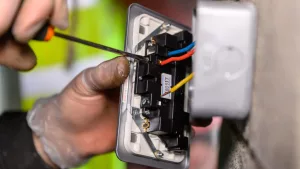The typical job responsibilities of a superintendent include the following:
- Conducting routine inspections of the building.
- Regularly cleaning common areas such as the lobby, elevator, and roof deck.
- Handling small repairs as needed.
- Ensuring that all building systems, including heating, air conditioning, plumbing, electrical systems, and elevators, are functioning properly and efficiently.
- Sorting and disposing of waste.
- Reporting safety hazards to management.
- Responding to emergencies.
- Acting as a liaison between ownership/management and residents.
- Managing the operation of the boiler and heating system.
- Coordinating with contractors and service providers to complete repairs or renovations.
- Providing building access to contractors, inspectors, and other third parties.
- Reporting violations of house rules to management.
- Managing building security and responding to emergencies.
- Addressing small requests from individual residents, typically for a tip
Specific duties of a superintendent can vary by building.
Tiny residential buildings often have a part-time manager.
Self-managed condos or co-op buildings may not have a manager at all. In contrast, large doorman buildings might employ several full-time maintenance personnel.
How much do building supers make?
The salary of a building superintendent (super) can vary significantly based on several factors, including the size of the building, specific job responsibilities, the owner’s budget, and the individual’s experience and qualifications.
In New York City, a superintendent of a small building may earn as little as $500 or as much as $ 5,000 per month. Individuals in this pay range typically work a set number of hours each week, performing a limited range of tasks such as cleaning common areas, responding to emergencies, handling minor repairs, and coordinating building access for outside repair personnel.
Part-time supers often work for multiple buildings located within the same neighborhood or general area.
Full-time supers usually earn higher salaries. This is because they are on-site more and have more responsibilities. The superintendent of a large building may take on a management role. They oversee maintenance staff and also third-party contractors and vendors.
Live-in supers often earn less money than they could. This is because they get the big benefit of a free apartment in the building.
What makes a good building superintendent?
A good building superintendent should possess the following qualities:
- Basic Maintenance Skills: A building superintendent should be knowledgeable in basic maintenance tasks such as replacing outlets, unclogging sinks, repairing drywall, and painting. Additionally, they should have an understanding of advanced construction techniques. It’s important to note that larger, specialized repairs are typically handled by third-party professionals.
- Effective Communication Skills: A competent building superintendent must be able to communicate effectively with tenants, property owners, management, and third-party contractors. Since superintendents are often called in during emergencies (such as floods) when emotions run high, they should remain calm under pressure and not be easily provoked. A diplomatic approach to resolving disputes is essential.
- Problem-Solving Skills: A superintendent should be able to address problems as they arise. This includes issues with electrical, plumbing, and mechanical systems. In the event of significant issues, they should be able to clearly identify the problem so that the appropriate third-party repair person can be contacted.
- Physical Stamina: A superintendent needs to be in good health. This helps with tasks like painting, lifting heavy items, and climbing ladders. They should also feel at ease working in places where rodents and pests are often found. This is especially true in basements near mechanical systems, such as boilers.
 superintendent’s duties may include handling maintenance requests, doing minor repairs, and cleaning common areas. They also enforce building rules, conduct regular inspections, manage emergencies, and work with outside contractors and vendors.
superintendent’s duties may include handling maintenance requests, doing minor repairs, and cleaning common areas. They also enforce building rules, conduct regular inspections, manage emergencies, and work with outside contractors and vendors.

